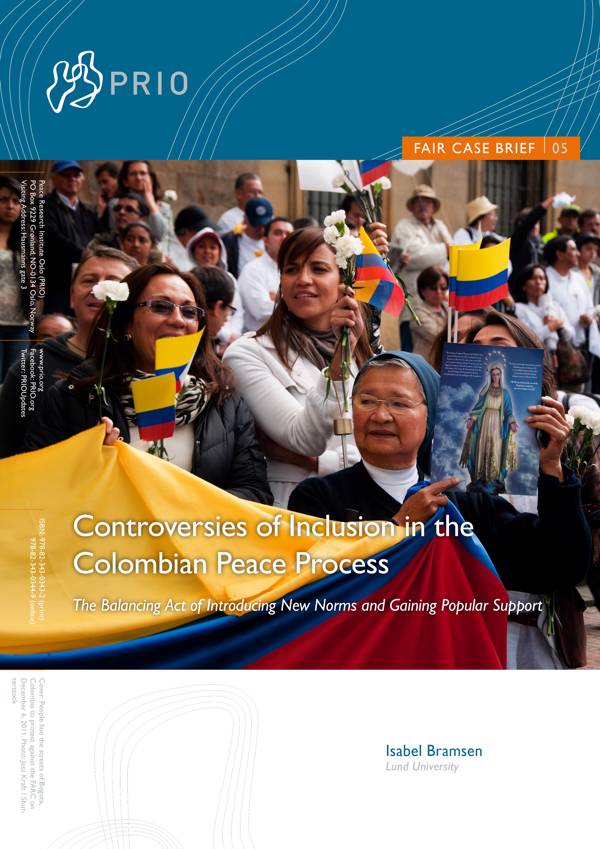The question of justice versus peace has long been accepted as a core dilemma in peace studies and practice – should conflicting parties be granted amnesty in the name of peace? Another controversy that has gained less attention is that of peace versus inclusion. Contrary to the peace/justice dilemma, inclusion and peace are often seen as intersecting unproblematically and even being co-dependent. In recent years, the truism in much peace research has been that the more inclusive the peace process, the better – particularly the inclusion of women, minorities, victims, or even the greater public. This piece argues that inclusion is in fact a controversial issue with several dilemmas in relation to peace processes. It does so by taking the Colombian case as its point of departure: a peace process that has been praised worldwide for its inclusivity, especially when it comes to women, but that also exemplifies some of the controversies regarding inclusion. Having unfolded the context of the conflict, this case brief discusses the interrelated controversies of the inclusion of women in the peace process and referendum about the peace agreement.
Bramsen, Isabel (2022) Controversies of Inclusion in the Colombian Peace Process: The Balancing Act of Introducing New Norms and Gaining Popular Support. FAIR Case Brief: 5. Oslo: PRIO.








